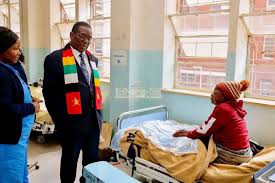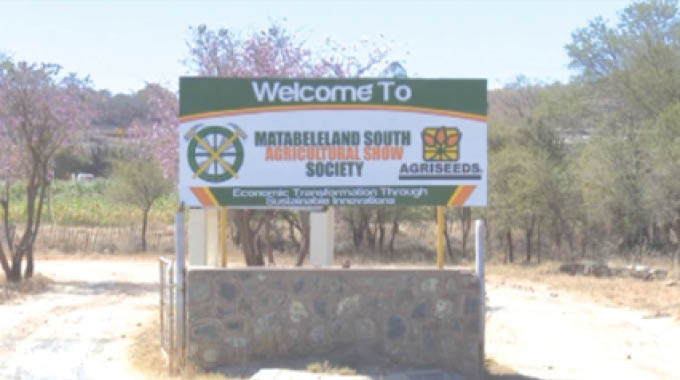
PRESIDENT Emmerson Mnangagwa this week heeded a call by one of his ministers to visit public hospitals to witness firsthand the deteriorating state of the health institutions.
Writing on X, formerly Twitter, Mnangagwa said: "I visited Parirenyatwa and Sally Mugabe hospitals, as well as the NatPharm warehouse, to gain a clearer understanding of the current state of our public health services. Strengthening healthcare delivery remains a central focus of the second republic.”
The visit comes a month after Youth Affairs minister Tinoda Machakaire made an impassioned plea to Mnangagwa to visit public hospitals.
There was a spirited attempt by the Health and Child Care ministry to downplay the health crisis.
The Health and Child Care ministry said the comments seemed to be “well-orchestrated efforts aimed at selectively highlighting challenges within the public healthcare system, while deliberately overlooking the critical services still being provided — often under resource-constrained conditions — and the significant progress made in recent years.”
The ministry gloated that it was on top of the situation, listing the successes it scored, notwithstanding the cries of a health sector on its knees.
Zimbabweans knew that the ministry was clutching at straws as the situation was dire and Mnangagwa saw it for himself on Monday.
According to the Zimbabwe Doctors for Human Rights (ZADHR), Monday’s visit provided the President an opportunity to appreciate firsthand the state of the public health delivery system in Zimbabwe, which is generally plagued by dilapidated infrastructure, shortage of drugs and consumables, and demoralisation.
- Hesitancy slows Covid vaccination for children
- Hesitancy slows Covid vaccination for children
- Multisectoral COVID-19 messaging campaign improving prevention and vaccine uptake in Zimbabwe
- Cultivate demand for Covid-19 vaccines
Keep Reading
What’s next after the visit?
ZADHR wants Mnangagwa to appoint a commission of inquiry to investigate the challenges facing the health sector. It proposes that the inquiry scrutinises the current health financing mechanisms in Zimbabwe and the challenges and opportunities, and the country's efforts at fulfilling the Abuja Declaration commitments on health financing.
It must scrutinise the funds raised by government through specific health-related taxes such as the sugar tax since their inception, the utilisation of such amounts, the current situation in public hospitals, with focus on referral institutions, including staffing levels at these institutions, the poor remuneration of all medical personnel and address the mass exodus of professionals in this critical sector.
According to the doctors the process must, therefore, be robust with full engagement of public health institutions, health workers, communities and other relevant stakeholders.
Citizens must also be allowed to give evidence of their experiences with the health sector, ZADHR proposed.
The health sector has all but collapsed, weighed down by underfunding and mismanagement. The public hospitals have run out of basic sundries like bandages and Paracetamol.
There are also allegations of drug pilferage and coercion of patients to pay personnel to access medical care at most public health institutions.
Mnangagwa must also visit the birth and registration office, especially at Market Square in Harare, where mothers are sleeping in queues or buying numbers from "entrepreneurs” to be able to obtain birth certificates for their children.
The visits should galvanise public officials into action if the President is to be taken seriously. It can't be business as usual in the public sector anymore.






